




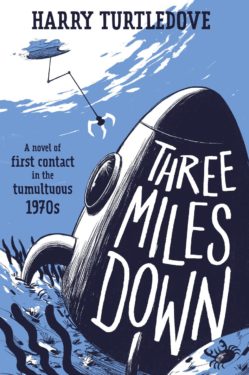 From New York Times bestselling author Harry Turtledove, the modern master of alternate history, a novel of alien contact set in the tumultuous year of the Watergate scandal.
From New York Times bestselling author Harry Turtledove, the modern master of alternate history, a novel of alien contact set in the tumultuous year of the Watergate scandal.
It’s 1974, and Jerry Stieglitz is a grad student in marine biology at UCLA with a side gig selling short stories to science fiction magazines, just weeks away from marrying his longtime fiancée. Then his life is upended by grim-faced men from three-letter agencies who want him to join a top-secret “Project Azorian” in the middle of the north Pacific Ocean—and they really don’t take “no” for an answer. Further, they’re offering enough money to solve all of his immediate problems.
Joining up and swearing to secrecy, what he first learns is that Project Azorian is secretly trying to raise a sunken Russian submarine, while pretending to be harvesting undersea manganese nodules. But the dead Russian sub, while real, turns out to be a cover story as well. What’s down on the ocean floor next to it is the thing that killed the sub: an alien spacecraft.
Jerry’s a scientist, a longhair, a storyteller, a dreamer. He stands out like a sore thumb on the Glomar Explorer, a ship full of CIA operatives, RAND Corporation eggheads, and roustabout divers. But it turns out that he’s the one person in the North Pacific who’s truly thought out all the ways that human-alien first contact might go.
And meanwhile, it’s still 1974 back on the mainland. Richard Nixon is drinking heavily and talking to the paintings on the White House walls. The USA is changing fast—and who knows what will happen when this story gets out? Three Miles Down is both a fresh and original take on First Contact, and a hugely enjoyable romp through the pop culture, political tumult, and conspiracies-within-conspiracies atmosphere that was 1974.
Please enjoy this free excerpt of Three Miles Down, on sale 07/26/22.
I
Jerry Stieglitz sat cross-legged in front of the stereo on the bottom shelf of one of the bookcases in his apartment. The thick red shag carpet was nearly as comfortable as the nubby nylon that covered the sofa. His powderblue cord bell-bottoms almost glowed against the crimson and scarlet background, but he was too used to that to notice.
He had two cassette tapes. One came from his advisor. The other he’d bought a couple of days before at the Westwood Wherehouse. Without hesitation, he put the commercial tape in first.
He brushed back his long brown hair so his headphones fit more snugly. Then he turned the volume up. Side two of Pretzel Logic filled his brain. He’d liked Can’t Buy a Thrill and Countdown to Ecstasy a lot, and the new Steely Dan album was at least as good as the first two. Nice to find a band that didn’t run out of ideas after a couple of records. Too many did.
“Parker’s Band” and “Through with Buzz” . . . Jerry’s head bobbed up and down, enough to make him straighten his wirerimmed glasses on the bridge of his nose. He’d worn cheaters for a long time; sometimes he straightened them even when he wasn’t wearing them. Anna’d caught him doing it once or twice. His fiancée thought that was hilarious. He just thought it was stupid.
After “Charlie Freak” ended, he hit the Stop button and took out the tape. For one thing, he didn’t like the last two tracks as much as the rest of the album. And, for another, he really wanted to hear the cassette Professor Krikorian had given him.
Because Jerry’d been working with Hagop Krikorian for five years now, he had no trouble deciphering the scrawl on the tape’s label. “Humpbacks,” it said. “Northern Pacific, July 1973.” Only the summer before. Hot off the press, or near enough in marine biology.
He turned the volume up some more. Steely Dan was electric guitars and keyboard and drums. Humpback songs—some people called them vocalizations, but Jerry thought songs was more descriptive and more accurate—put him in mind of sad trombones grooving with bassoons. They weren’t, of course, but that was what they reminded him of.
In 1970, a couple of months after Jerry got his B.S. at UCLA, pioneering scholar Roger Payne had released an album called Songs of the Humpback Whale. It became one of the most improbable top sellers of all time. One of the tracks was sped up to fourteen times its actual speed, and sounded astonishingly like birdsong.
Jerry appreciated the accelerated version’s different beauty, but he liked the whale sounds better at their true pace. He tried to find patterns in them, and to work out why the humpbacks sang the way they did. Were males courting females, as birds did with their melodies? Were they talking about where the krill was thickest? Or were they just . . . singing? Nobody knew. Looking for answers, though, was endlessly fascinating—to him, anyhow.
Since he had the headphones on and the volume cranked up, he didn’t hear people coming up the stairs to the second floor—his floor—of the apartment building. He felt the footsteps, though, through his legs and backside. He was too focused on humpback sounds to notice that those footsteps stopped in front of his door.
He didn’t notice the knocks on the door right away, either. But they got louder and more insistent. He glanced at the stereo. When he put on the headphones, he usually remembered to poke the button that took the main speakers out of the loop. But he wasn’t perfect about it. He’d already irked the couple downstairs two or three times. Did they have humpbacks swimming through their ceiling at heart-stopping volume?
As a matter of fact, they didn’t. The knocking kept on anyway. Muttering, Jerry stopped the tape, stood up, went to the door, and opened it.
Three men he’d never seen before stood on the walkway outside his apartment, one in front and two behind. They all wore suits. One of the men in back carried a briefcase. The guy in front was in his fifties, short and burly. He wore his hair in a greased pompadour, as if he’d decided he liked the style in 1946 and never noticed the times had changed.
“You are Jerome Samuel Stieglitz?” he barked.
“Yeah, that’s right,” Jerry answered automatically. “Uh, who are you?” He hoped like hell they weren’t cops—he had a couple of joints stashed in a kitchen drawer.
Instead of answering, the burly man pushed past him and into the apartment’s long, narrow front room. His two buddies followed. As soon as everybody was inside, one of the henchmen closed the door again.
“Who are you people?” Jerry repeated.
As if he hadn’t spoken, the guy with the pompadour said, “I’m gonna need to see some ID, Stieglitz.”
He had a good command voice. That was what Jerry’s friends back from Vietnam called it. Jerry’s hand started for his wallet before he even thought about it. He made the hand stop.
“Hold on, dammit,” he said. “Who the hell are you? You want something from me, show me a warrant.”
The stocky man snorted in annoyance. “You can call me John P. I’m with the CIA.” He bobbed his head toward each of his pals in turn. “This is Fred, and that’s Steve.” Fred was the one with the briefcase. Steve had shut the door.
Things were happening much too fast for Jerry. He stared at John P., and at his friends. “You guys are from the CIA, too?” he blurted.
Fred nodded. Steve said, “Actually, I work for the RAND Corporation.” He was about the same age as John, and looked like a professor. Jerry had no trouble believing he drew a paycheck from the big, fancy think tank in Santa Monica.
“Your ID,” John P. said again. He was not only built like a boulder, he was as implacable as one rolling downhill.
This time, Jerry did pull out his wallet. He displayed his driver’s license. John carefully checked the photo against his face, then gave a grudging nod. As Jerry stuck the wallet back into his left front pocket, he said, “Now let me see something that proves you are what you say you are.”
John shook his head. “Sorry. Not gonna happen. People who work for a secret outfit don’t carry cards that say, ‘Hi, I work for a secret outfit.’ You wanna call the cops, go ahead. We’ll be gone before they get here, and you’ll never find out what this was all about.”
Jerry didn’t call the cops. He’d had his car broken into a couple of years before. The Hawthorne police were no faster than they had to be, and no smarter. Later, he wondered if he should have. But that was later. At the moment, he just asked, “Okay, what is this all about?”
“You are Jerry Stieglitz,” John said. “You are a grad student in marine biology at UCLA. You passed your doctoral exams a few months ago, and you’re working on your dissertation.”
“That’s me,” Jerry agreed. Then a light went on in his head. “Professor Krikorian said somebody was asking questions about me a couple of weeks ago. That was you people, wasn’t it?”
“Could have been,” John answered, deadpan. Then he unbent enough to grin. He looked years younger when he did. He went on, “You speak Russian, too.”
“Not real well. I read it better,” Jerry said.
“Okay. And you know a little Swahili. How did that happen?” John asked.
“I wanted to study a language that wasn’t Indo-European, just to give me a different slant on things,” Jerry replied. “The more I learn about all the ways people talk, the more I can bring to whale songs. I don’t think they’re speech, exactly, but I’m sure they’re more than grunts and barks.”
John glanced at Fred and Steve. Fred looked back with no expression at all. Jerry wouldn’t have wanted to play poker with him. Steve smiled and nodded. Jerry felt as if he’d passed some kind of small test.
He asked, “Why does the CIA need to know all this stuff about me?”
Instead of answering, John went on, “Along with an article, you’ve also published two science-fiction stories, one in Analog, one in The Magazine of Fantasy and Science Fiction. They have whales in them.”
“Well, yeah,” Jerry said. “I’m writing about what I know about. I’m not gonna talk about lizards or gophers.”
Steve smiled again. Fred just stood there. John said, “Before we go any further, you have to agree to keep what your hear quiet from everybody. Everybody means everybody. Reporters. Friends. Your advisor, Dr. Krikorian. Your father. Your fiancée, Miss Anna Elaine McGowan. If you make that promise and then break it, you’ll wish you’d never been born. Understand me?”
They’d know when he was sleeping. They’d know when he was awake. They’d probably know when he was bad and good, too. Jerry was Jewish, but he’d learned Christmas carols in elementary school along with everybody else. “I understand,” he said slowly.
“All right. Do you agree?”
Jerry had no great love for the CIA. He also couldn’t imagine why they wanted anything from him. That was the problem. His bump of curiosity itched. If he didn’t scratch it . . . If he didn’t scratch it, he’d spend the rest of his life wondering what he’d missed.
He took a deep breath. “Yeah. I agree.”
“Good. Glad to hear it,” John said, and then, “Fred?”
Fred hefted the briefcase, as if looking for somewhere to set it down. His eyes first lit on the table in the dining nook between the front room and the cramped little kitchen. Jerry worked at that table. His typewriter held pride of place. Papers drowned the rest of the tabletop. He had to shove them aside when he wanted to eat. Fred put the briefcase on the coffee table in front of the ugly couch instead.
Jerry didn’t like that table. It bit him in the shin whenever he wasn’t careful. To open the case, Fred worked what looked like a combination lock. He pulled out some papers and handed them to John.
John passed them to Jerry. “Confidentiality and nondisclosure agreement. You can read it before you sign. I already gave you the gist, though.”
Read it Jerry did, or at least glanced through it. “What’s Project Azorian?” he asked.
“It’s what you’re going to keep quiet about,” Fred told him: the first words out of his mouth since he’d barged into Jerry’s apartment. “Keep quiet about the name, too, whether you sign or not. Real quiet.” Both the other intruders nodded.
Project Azorian aside, the agreement was what John said it was. The word felony popped up a dismaying number of times. “Boy, you weren’t kidding, were you?” Jerry said.
“I never kid,” John P. answered. From some people, that would have been a joke. Jerry got the feeling the CIA guy meant it.
Which had nothing to do with the price of beer. Jerry walked over to the kitchen table, grabbed a pen that was sticking out from under some of the papers there, and scrawled his signature on the indicated line. He handed the agreement back to John. “Here you go. What did I just sign my life away for?”
John answered the question with a question of his own: “Have you heard about the ship called the Hughes Glomar Explorer?”
“The ocean-mining ship? Yeah. Funny-looking thing! I saw it on the TV news when it sailed into . . . was it Long Beach or San Pedro?”
“Long Beach,” Fred said.
“Yeah. Long Beach,” John agreed. He glowered at Jerry. “Okay. Now you find out why you signed that paper. The Glomar Explorer doesn’t belong to Hughes. It belongs to us: to the Agency, the CIA. We don’t give a shit if it ever pulls up any manganese nodules off the seafloor. That’s just the cover story for what it’ll really be doing in the North Pacific, which is what Azorian is all about.”
“Riiight.” Jerry let the word stretch. He hated asking the obvious question, but he didn’t seem to have much choice. “What will it be doing there?”
“In February 1968, the Russians lost a submarine in those waters—the K-129,” John said. “It’s a diesel boat, but it was carrying missiles tipped with nuclear weapons, maybe torpedoes tipped with them, too. The ocean there is three miles deep: a little more, actually. They searched for it after they lost contact, but they didn’t know exactly where it went down. They looked for a while. Then they gave up and went home. We found it, though.” He looked and sounded smug.
The next obvious question was, How did you do that? Jerry didn’t ask it. Instead, he said, “SOSUS.”
Fred jerked as if somebody’d stuck him with a pin. “You aren’t supposed to know about SOSUS!” he yipped.
John was cooler. “Relax. He’s a marine biologist, remember? A marine biologist who does whales, no less. He’ll know.”
“’Fraid so,” Jerry said. SOSUS was the acronym for SOund SUrveillance System, the strings of hydrophones the Navy had laid on the ocean floor in the North Atlantic and North Pacific. They were there to listen for Soviet submarines and warn the brass if the Russians tried anything nasty.
They were there to listen for submarines, but they also picked up whale sounds. A lot of the material people like Hagop Krikorian and Jerry Stieglitz worked with came from SOSUS recordings . . . unofficially, but it did. In fact, SOSUS technicians had been the first people to detect low-frequency blue whale and fin whale vocalizations.
“Anyway, that gave us a pretty good location,” John said. “Then we sent out a sub of our own, one with cameras on the ends of long cables, and it gave us the exact position . . . and these.”
He took a big manila envelope out of Fred’s briefcase and gave it to Jerry. Jerry undid the metal clasp. He pulled out a stack of photos. Very detailed, they showed the wreckage of most of a submarine on its side at the bottom of the ocean. It looked cruder, more squared-off, than modern American boats. All the same, the sub seemed amazingly intact. In one picture, a skeleton still in seaboots lay near the hull.
Jerry noticed that the photos began with number 79 and continued through 180. “What’s on one through seventy-eight?” he asked.
“You don’t need to know that,” John said sharply.
“Yet,” Steve added. John sent him a red-hot dirty look. Steve just smiled. A quarter of an inch at a time, John subsided.
“Okay, you found the sub, the, uh, K-129,” Jerry said. “Now what, though? You said it’s three miles down. Not like you can bring it up from there.”
“That’s what the Russians think, too,” Fred said.
“You bet it is,” John agreed. “But they’re wrong. Or we hope they are. We built the Glomar Explorer to hook a giant lifting claw— Clementine, we call it—under that submarine and haul it back to the surface. Missiles to analyze, maybe codebooks to let us read Ivan’s mail . . . Who knows what kind of goodies we’ll find?”
“Wow. Oh, wow,” Jerry said. The first thing that came to him was You’re out of your fucking minds. But they obviously weren’t. The CIA wouldn’t have spent some large number of million dollars and cooked up this elaborate cover scheme if they didn’t think they had at least a decent chance of raising the lost Soviet sub. But . . . “Where do I fit into all of this?”
“We want you to come along,” Fred answered.
“This is supposed to be a research vessel,” John amplified. “While most of the crew will be learning how to bring up manganese nodules, you’ll be learning about whales out in the open ocean. You know, like what’s-his-name on the Beagle.”
“Darwin,” Jerry said faintly.
“Yeah. Him.” John P. nodded. It was somehow perfectly in character that he could call up the ship’s name but not the scientist’s. John went on, “You really will be able to bring on whatever you want and do as much research as you can. You’ll make things look authentic, know what I mean?”
“You get paid, too,” Steve put in.
“That would be nice,” Jerry said. What he made as a teaching assistant barely covered rent, food, and gas. Any expensive emergency and he’d end up moving back in with his old man. They both wanted that like a hole in the head. Anna worked in advertising at a travel magazine. Her paycheck was a good bit bigger than this. When they got married, they’d merge their finances. In the meantime, he scuffled. Scuffling was a grad-school way of life. A beat slower than he might have, he found the right question: “Paid how much?”
Steve didn’t answer. Neither did John. His eyes swung toward Fred. Fred said, “As marine biologist aboard the Glomar Explorer, your monthly salary would be two thousand nine hundred thirtythree dollars. Two months guaranteed, after that as necessitated by the project.”
“Twenty-nine thirty-three?” Jerry wanted to make sure he’d heard right. That wasn’t TA money. Two months of that would be more than he made all year as a TA. It wasn’t junior-faculty money, either. It was full-professor money, maybe even department-head money.
But Fred just nodded and said, “Correct.”
“When do I start?” Jerry asked. He was proud of himself for making it sound like an ordinary question. He wanted to yell and scream and whoop and bounce off the walls and ceiling as if he were in a Bugs Bunny cartoon.
“We expect the Glomar Explorer to leave Long Beach harbor on or about June twentieth,” John answered. “There’s only a narrow window in the North Pacific when we hope sea conditions will be calm enough to let us do what we need to do. We want to make sure we can exploit it.”
“June . . . twentieth.” Jerry winced. He’d be done with spring quarter. That wasn’t the problem. “Look, I know you guys will have me checked out nine ways from Sunday. And if you’ve checked me out, you’ll know—
“That you and Miss Anna Elaine McGowan plan to get married on June thirtieth,” John finished for him.
“No, we didn’t know that at all,” Steve said, and chuckled. Of the three of them, he was, if not the Good Cop, at least the Best Cop.
“We can’t delay sailing for anyone’s personal considerations. You have to understand that.” John’s tone said he could go to hell if he didn’t understand it—go to hell and not go on the Glomar Explorer.
“We’ve already made arrangements, though,” Jerry said helplessly. “We’ve spent money. We’ve rented the synagogue. We’ve got the food set up. We’ve booked our honeymoon. We’ve—” He gave up. If he went, Anna wouldn’t want to marry him. She’d want to murder him. He didn’t see how he could blame her, either.
Steve sidled over to Fred and whispered in his ear. Fred looked like a guy who’d just bit down hard on a lemon. Steve gestured to John. They all put their heads together.
“We’ll pay all the expenses involved in delaying your wedding,” Fred said. “That includes covering your rent here for as long as you’re away.”
Jerry didn’t answer right away. They really want me, he realized. The feeling was strange. It went to his head like champagne. Grad students had to be among the most chronically unwanted people in the world.
After a few seconds, he said, “I still don’t think Anna would be real happy with that.”
“Understandable. We’re messing up plans you’ve already made. If we give the two of you, ah, two thousand dollars as compensation for the inconvenience, would that make the lady happier? Would it make you happier?” Steve said. “We can call it a wedding present or something.”
John and Fred both opened their mouths, then closed them again without saying anything. These people have more money than they know what to do with. Literally, Jerry thought. It wasn’t a problem he’d ever needed to worry about before.
“Can I tell her that that will happen?” he asked.
“Go ahead.” John didn’t sound happy, but he gave the okay.
“Call me tomorrow afternoon. I’ll let you know what she says.” Jerry didn’t bother giving his phone number. It was unlisted, but they had to know it anyway.
There wasn’t much talk after that. The three men left as abruptly as they’d pushed their way in. Jerry watched them go down the stairs and out the door to the foyer. As soon as they disappeared, he started wondering if they’d really been there at all.
He wrote that down on a three-by-five card and stashed it in the manila folder he called his idea file. Waste not, want not.
Copyright © 2022 from Harry Turtledove
Pre-Order Three Miles Down Here:





 Do you love aliens in sci-fi? Are you fascinated by all the different ways extraterrestrial life can be brought to the pages of books? So does Harry Turtledove, author of Three Miles Down. Check out his guest post on the topic below!
Do you love aliens in sci-fi? Are you fascinated by all the different ways extraterrestrial life can be brought to the pages of books? So does Harry Turtledove, author of Three Miles Down. Check out his guest post on the topic below!







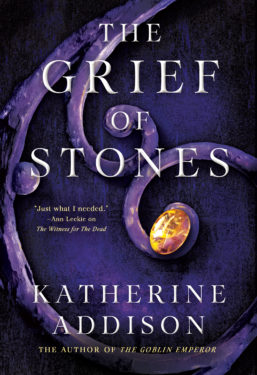 The Grief of Stones
The Grief of Stones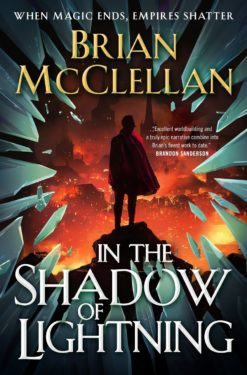 In the Shadow of Lightning
In the Shadow of Lightning Daughter of Redwinter
Daughter of Redwinter The Origin of Storms
The Origin of Storms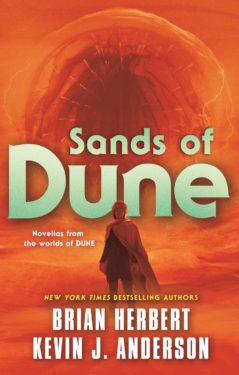 Sands of Dune
Sands of Dune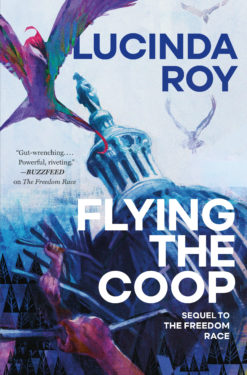 Flying the Coop
Flying the Coop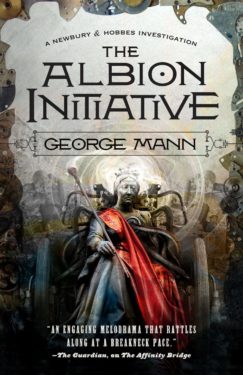 The Albion Initiative
The Albion Initiative The Memory in the Blood
The Memory in the Blood Mythago Woods
Mythago Woods Just Like Home
Just Like Home
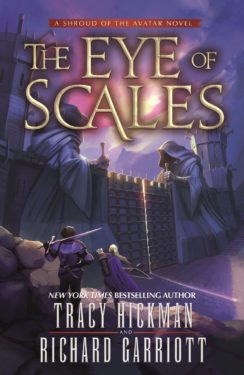 The Eye of Scales
The Eye of Scales The Book Eaters
The Book Eaters Full House
Full House Councilor
Councilor
 Dance with the Devil
Dance with the Devil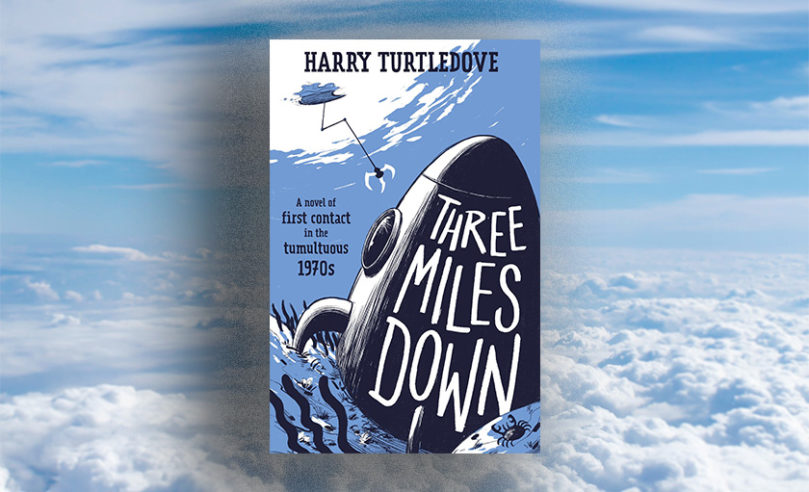
 From New York Times bestselling author Harry Turtledove, the modern master of alternate history, a novel of alien contact set in the tumultuous year of the Watergate scandal.
From New York Times bestselling author Harry Turtledove, the modern master of alternate history, a novel of alien contact set in the tumultuous year of the Watergate scandal.